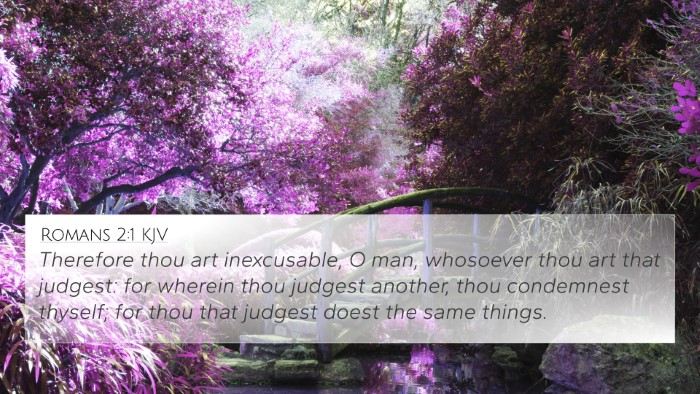Understanding Luke 12:14
Verse: "But he said to him, 'Man, who made me a judge or arbitrator over you?'" (Luke 12:14, ESV)
Meaning and Interpretation
This verse occurs within a context where Jesus is teaching about the dangers of greed and materialism. A man interrupts Jesus, seeking assistance in dividing an inheritance. Jesus' response reveals His disinterest in worldly matters and highlights the futility of seeking life's security through possessions.
Key Insights from Public Domain Commentaries
-
Matthew Henry:
Henry emphasizes that Jesus came to preach the gospel, not to settle civil disputes or determine earthly inheritance. His response redirects the focus from material wealth to spiritual well-being. He admonishes us to be wary of covetousness, indicating that life does not consist in the abundance of possessions.
-
Albert Barnes:
Barnes points out that Jesus' refusal to act as a judge highlights the distinction between earthly concerns and heavenly responsibilities. He argues that this statement serves as a reminder of the ultimate judgment and the need to prioritize spiritual wealth over temporal gains.
-
Adam Clarke:
Clarke elaborates on the implications of Jesus' reply, arguing that Jesus stresses the importance of righteousness over riches. He warns against allowing personal grievances or disputes to hinder one's spiritual growth. His commentary underlines that Jesus focuses on the eternal truths of God's kingdom rather than temporary, worldly responsibilities.
Cross References
To deepen the understanding of Luke 12:14, one can explore several related verses that illustrate similar themes of wealth, greed, and spiritual priorities:
- Luke 12:15: "And he said to them, 'Take care, and be on your guard against all covetousness, for one's life does not consist in the abundance of his possessions.'" - This verse directly follows Luke 12:14 and stresses the importance of guarding against greed.
- Matthew 6:19-21: "Do not lay up for yourselves treasures on earth, where moth and rust destroy, and where thieves break in and steal... For where your treasure is, there your heart will be also." - Here, Jesus reinforces the teaching of prioritizing spiritual treasures over material ones.
- 1 Timothy 6:9-10: "But those who desire to be rich fall into temptation, into a snare, into many senseless and harmful desires that plunge people into ruin and destruction..." - This passage highlights the dangers of the love of money.
- Ecclesiastes 5:10: "He who loves money will not be satisfied with money, nor he who loves wealth with his income; this also is vanity." - Ecclesiastes echoes the futility of chasing after wealth.
- Luke 16:13: "No servant can serve two masters. For either he will hate the one and love the other, or he will be devoted to the one and despise the other. You cannot serve God and money." - This verse shows the conflict of interests between serving God and material wealth.
- James 4:3: "You ask and do not receive, because you ask with wrong motives, so that you may spend it on your pleasures." - James provides insight into the motives behind requests for wealth.
- Proverbs 11:28: "Whoever trusts in his riches will fall, but the righteous will flourish like a green leaf." - This proverb reinforces the idea of the unreliable nature of riches.
- Colossians 3:2: "Set your minds on things that are above, not on things that are on earth." - Paul encourages the followers to focus on eternal rather than temporal concerns.
- Matthew 19:24: "Again I tell you, it is easier for a camel to go through the eye of a needle than for a rich person to enter the kingdom of God." - This highlights the spiritual dangers of wealth in context to eternal life.
- Luke 18:24-25: "Jesus, looking at him, said, 'How difficult it is for those who have wealth to enter the kingdom of God!'" - This reiterates the challenges faced by wealthy individuals in spiritual matters.
Thematic Connections
Luke 12:14 and its related scriptures establish a theme concerning the relationship between wealth and spiritual well-being. The overarching message encourages believers to seek first the kingdom of God and not to be distracted by earthly desires.
This verse and its commentary help form a framework for understanding how material issues can interfere with spiritual growth and highlight the importance of prioritizing God in all aspects of life.
Conclusion
The study of Luke 12:14 reveals Jesus' profound wisdom in addressing the concerns of greed and selfishness. Through the insights of respected theologians and the deep connections with other scriptural passages, we find a compelling call to evaluate our own priorities and consider where we place our trust and hope.












